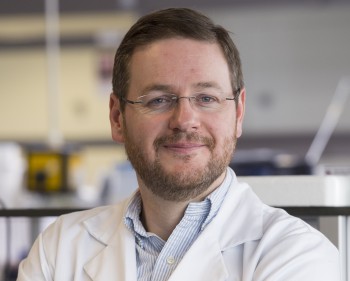A new study will assess whether tiny molecules found in the immune systems of humans can be used to combat the potentially deadly dengue virus.
The research will be carried out by scientists at Edinburgh Napier, who have been awarded a £395,000 grant by the Medical Research Council and the Ristekdikti Government body in Indonesia, where dengue is endemic. The university team will work with research partners at the University of Indonesia and the Eijkman Institute for Molecular Biology in Jakarta.
The virus, which is transmitted by mosquitoes, is common in more than 100 tropical countries. It causes fever, headaches and joint pains, and can develop into dangerous conditions like dengue hemorrhagic fever or dengue shock syndrome.

It infects approximately 50-100 million people per year, and in the most severe cases can kill.
There is no effective treatment but the Edinburgh Napier team believe molecules present in the immune systems of humans and animals can be modified and used to fight the infection, and can point to new approaches.
They hope the three-year research programme, which begins early next year and runs until 2022, will pave the way for new antiviral drugs.
Earlier research showed these antiviral molecules called cathelicidins, which occur naturally in the human body, can kill viruses like influenza.
With a previous study also identifying their ability to kill dengue, the researchers want to explore whether developing new medicines based on the structure of cathelicidins might be the most effective way forward.
The study will analyse the ways in which cathelicidins are part of the immune response against the dengue virus, and find ways of harnessing this powerful activity to develop a treatment for the infection. The scientists will also assess whether substances like Vitamin D, which stimulates cathelicidin production, may have a role to play in tackling the infection.
The project will also involve analysing samples from dengue patients and measuring cathelicidin concentrations in the blood to examine the link between cathelicidin levels and the severity of the disease.
UK lead investigator Dr Peter Barlow, Associate Professor of Immunology & Infection in Edinburgh Napier’s School of Applied Sciences, said: “This is an outstanding opportunity to learn about how dengue virus interacts with the immune system, and to use this knowledge to develop new antiviral approaches for treating this devastating infection.
“Dengue virus can be deadly and currently does not have an effective treatment, therefore it is critical that we perform this work to discover new ways to treat it.”
Earlier related research at the School of Applied Sciences has explored the mechanics of human and animal immune systems as part of projects to develop treatments for the primary cause of common cold, rhinovirus, as well as influenza virus.